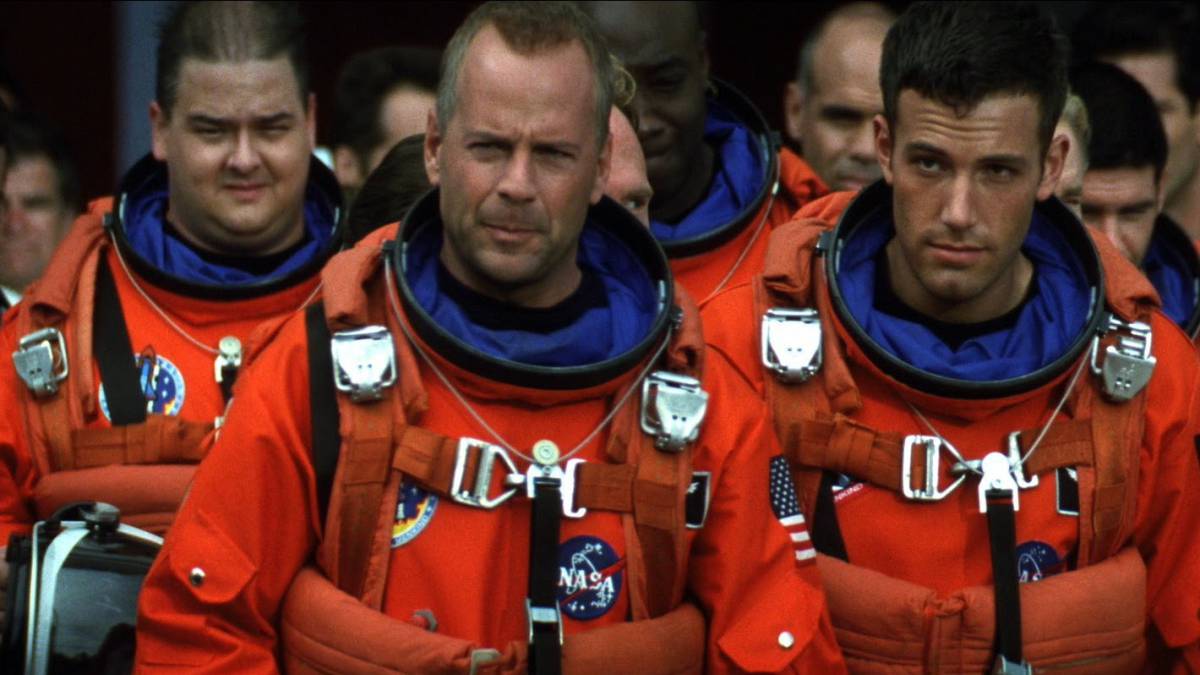-
• #50927
obviously that would be lower impact.
How so?
-
• #50928
I was going to ask this too.
(especially, as it will be frozen anyway - either as a big lump or millions of tiny, frozen droplets - all travelling at thousands of miles an hour)
-
• #50929
it can be directed to the sun or something
Thanks for confirming your complete lack of understanding of anything regarding space exploration...
-
• #50930
or something
And pollute Saturn's unspoilt ecology, bro?!? Or the mighty Jupiter's?!?
This makes me so angry...
-
• #50931
it can be directed to the sun or something
Thanks for confirming your complete lack of understanding of anything regarding space exploration...
Care to enlighten me?
-
• #50932
SpaceX haters coming across a bit like anti-science activists
-
• #50933
great project, about that there's no doubt, but shitty way to litter the solar system
i bet the very first cave man who chucked away a plastic bag didn't think it was all that much of a problem -
• #50934
Care to enlighten me?
My guess would be that the energy required to re-direct wayward space cargo to 'safe disposal' in the sun would be so great that an additional vehicle of some size would be required.
-
• #50935
Tesla looks to have overshot and now going to the asteroid belt.
Littering the asteroid belt. Disgusting. What would the Vestals say?
-
• #50936
My guess would be that the energy required to re-direct wayward space cargo to 'safe disposal' in the sun would be so great that an additional vehicle of some size would be required.
Perhaps send a Tonka car with a big booster rather than a Tesla then. There needed to be a dummy payload to test the rocket but it didn't need to go in the Mars direction.
-
• #50937
send something towards mars that might be useful in a future mars mission, a ton of water could start the terra forming and the rise of kuato
-
• #50938
The end result is the same - the mass expelled form the booster remains in space, except spread out.
Again, I've not dome the calculations, but my guess is that the deltav required for sending something into the sun is so great that even sending a negligible mass would require fuel payload with a mass of magnitudes greater than that required to send a car into Mars orbit.
Resulting in millions of miles of tiny bits of litter.
-
• #50939
the chances of anything...
-
• #50940
What're the odds that it still manages to hit a cyclist?
-
• #50941
I don't know why they didn't think of this.
I mean, it's not exactly rocket science.
-
• #50942
bumping into some of said asteroids knocking them out of a well established orbit and into the path of earth
he's killed us all, how long have we got ?
We got these guys and a bitchin' Aerosmith song. We're good.

-
• #50943
Omg so much rep
-
• #50944
Sometimes I think people don't realise how space works.
When you get into space you're orbiting Earth at about 17,500 mph. However, Earth is orbiting the sun at 70,500 mph so although relative to Earth you're moving at 17,500 mph, relative to the sun it's 70,500 mph. There's no air resistance, if you let off the gas you don't just decelerate to zero.
Something that weighs 1 tonne, if you want to stop it could take a lot of fuel or time to run a mono-propellant thruster. These are normally for attitude adjustment because the sort of thrust required to do this task means lugging a Saturn V rocket with you every time you want to "just point the thing at the sun".
Here's an example. Let's say the whole thing carrying the car weighs 1 tonne with all of it's gubbins included. A good thruster can produce 400N, it would take just over a day of running the thruster at full speed to reverse direction and speed completely. That's 70,500 mph to -70,500mph. We're not even including the difficulty or complexity of adding how much fuel you need to lug with you to do it.
That's why when you're in space, you use orbits to change direction and navigating requires complex calculations of working out how close you need to get to planets and moons to work out how fast you're going to be travelling, so how much you'll change direction, orbit entry and exit speeds, and this is just the basics.
The phrase is, "it's not exactly rocket science" for a reason.
Source: I am a rocket scientist.
-
• #50945
Experts can >>>>
-
• #50946
Even playing SimpleRockets or Kerbal, getting something to hit the sun is harder/uses more fuel than landing on mars.
-
• #50947
What happens if you slow down just a little bit so rather than orbiting the sun at 70,500 mph to orbit at 70,000 mph? Wouldn't that put you into a decaying orbit that ends up getting a bit warm eventually?
There is enough energy in the system to send a car out past Mars. Falling into the gravity well feels like it should be easier.
-
• #50948
We should ram raid Mercury, that little fucker has it coming.
-
• #50949
There is a car in space.
Live with it.
-
• #50950
Biodegradable innit. Seriously though I doubt it would freeze as one big lump so it would be millions of tiny droplets which could cause real damage but not as much as a giant lump of concrete.
 NotThamesWater
NotThamesWater mmccarthy
mmccarthy jellybaby
jellybaby Chung
Chung dicki
dicki Howard
Howard kl
kl Aroogah
Aroogah NurseHolliday
NurseHolliday Stonehedge
Stonehedge Well_is_it
Well_is_it dst2
dst2 Mr_Sworld
Mr_Sworld Fox
Fox @Platini
@Platini
Cosmos cunt domus etc